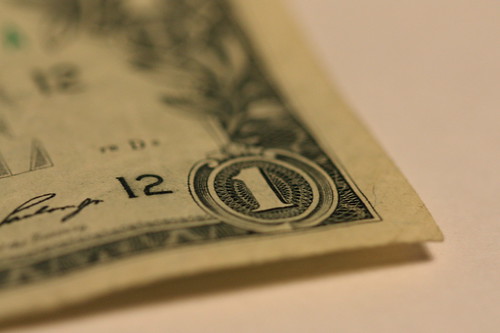To make sure my spending stays in check this year, I decided to make it much easier on myself when it came to writing up my 2013 budget. The less number-crunching and maneuvering I have to do, the better. After all, I'm trying to simplify my life. Who doesn't like simple, effective budgeting?
(I do feel compelled to emphasize that I am not a professional numbers gal, so while you may feel free to use this method for inspiration, I by no means guarantee its effectiveness!)
Okay, fine print out of the way. Here we go!
Fixed Expenses
These are the bills I will have to pay monthly or seasonally, and it also includes guaranteed expesnes. Some of them won't change at all from month to month, and others can be variable. I calculated the average amount I spend on those categories each month (of if it's something like a seasonal bill or an insurance premium, I calculated what the monthly expense would be). These fixed expenses include:
- Mortgage
- Internet
- Cell Phone
- Charitable Donation
- Gym Membership
- Netflix Account
- Monthly Savings Deposit (10% of my net income)
- Credit Card (zero-interest fixed payments on a piece of furniture I bought)
- Water/Sewer (quarterly bill, calculated by dividing average bill by three)
- Energy (variable, calculated using average yearly expense, divided by twelve)
- Car Insurance (bi-annual expense, calculated by dividing by six)
- Home Insurance (annual expense, calculated by dividing my twelve) - Added March 2013
- Groceries (guaranteed expense, calculated by average monthly spending over past year)
- Car Fuel (guaranteed expense, calculated by average monthly spending over past year)
Everything Else
I call this money "play money." That doesn't refer to the fake currency used in games like Monopoly or Life, but rather the entire remaining amount of my monthly net income after all guaranteed expenses are paid. These expenses include (but are not limited to):
- Dining Out
- Cocktails
- Clothing
- Gifts
- Entertainment (movies, concerts, sporting events, etc.)
- Toiletries (make-up, shampoo, tissue, soap, etc.)
- Household Needs (repairs, cleaning supplies, tools, etc.)
- Medical (prescriptions, co-pays, supplies, etc.)
- Miscellaneous (books, games, shoes, decor, electronics, shipping costs, travel, etc.)
- Emergencies (flat tire, tow truck, hospital visit, repairman, etc.)
Once all of the fixed items were calculated, I subtracted them from my monthly net income. I only counted my guaranteed full-time paycheck, because eBay sales and freelance gigs are too inconsistent for me to rely on. (But hey, that means when I do receive alternative income, it's a happy bonus!) The remaining amount is my Play Money. This is the amount of money I really have to spend for the entire month. When it's gone, it's gone.
Monthly Net Income - Monthly Fixed Expenses = Monthly Play Money
I wrote this number at the top of a magnetic marker board I keep on my fridge. As I spend money--- on anything from shoes to chai lattes to body lotion to furnace repairs--- I write the amount of the expense below my Play Money total, and then calculate the remaining amount. Over time, the Play Money budget begins to look like a long subtraction problem from elementary school arithmetic:
Once this number gets to zero, I can't spend any more money for the month... logically, because I don't have any money to spend. I need to make sure I cover my guaranteed expenses. I like to leave the whole subtraction problem up throughout the month (though you could always just re-write the new amount if you want to save space). I prefer to see exactly where it is going and how quickly it leaves my pocket, so I can catch wayward spending before it gets too out of hand. This method should keep me from overspending because I can scale back any purchases if the Play Money account gets too low early on.Example430.00- 28.48__401.52- 71.67__329.85- 4.31__325.54
(etc.)
That's it. Some initial number-crunching leads to only dealing with one simple math problem for the rest of the year. Even better: whatever I don't spend can go into my savings!

What an awesome idea! They look great. I have come some advice too about all of your money Budgeting. Thanks for sharing.....
ReplyDelete“Who doesn't like simple, effective budgeting?” - We're definitely on the same page! After I paid all of my debt last year, I promised to myself that I'll be more responsible in handling my finances. Having a budget plan is really helpful to keep me organize and save me some extra money as well. This is certainly a good way to start the year right! Anyway, you have an inspirational attitude and very dedicated. There's no doubt that before the year ends, you'll have more money in your saving. =)
ReplyDelete>>Jaden Allred